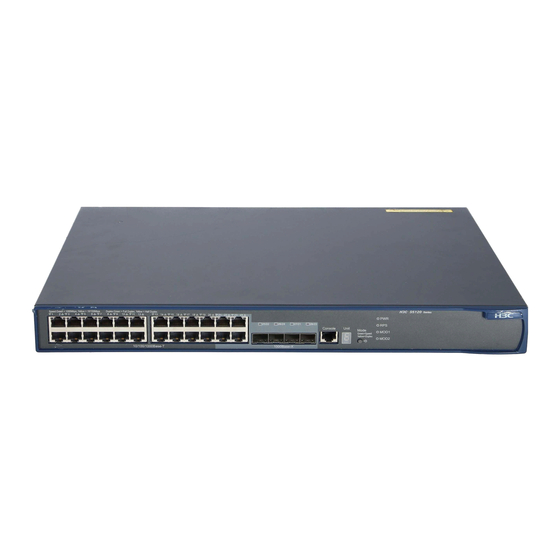HP 5120-48G EI TAA Configuratiehandleiding - Pagina 6
Blader online of download pdf Configuratiehandleiding voor {categorie_naam} HP 5120-48G EI TAA. HP 5120-48G EI TAA 39 pagina's. Hp 5120 ei switch series
Ook voor HP 5120-48G EI TAA: Gegevensblad (17 pagina's)

Application scenario
Figure 1
shows an IRF fabric that is formed by two switches, which appear as a single node to the upper
and lower layer devices.
Figure 1 IRF application scenario
Master
Basic concepts
This section describes the basic concepts that you might encounter when working with IRF.
IRF member roles
IRF uses two member roles: master and slave (called "subordinate" throughout the documentation).
When switches form an IRF fabric, they elect a master to manage the IRF fabric, and all other switches
back up the master. When the master switch fails, the other switches automatically elect a new master
from among them to take over. For more information about master election, see
IRF member ID
An IRF fabric uses member IDs to uniquely identify and manage its members. This member ID information
is included as the first part of interface numbers and file paths to uniquely identify interfaces and files in
an IRF fabric. For more information about interface and file path naming, see
conventions" and
If two switches have the same IRF member ID, they cannot form an IRF fabric.
IRF port
An IRF port is a logical interface for the connection between IRF member devices. Every IRF-capable
device supports two IRF ports. The IRF ports are named IRF-port n/1 and IRF-port n/2, where n is the
IP network
Subordinate
IRF link
"File system naming
conventions."
Equal to
2
IP network
IRF
"Master
election."
"Interface naming
